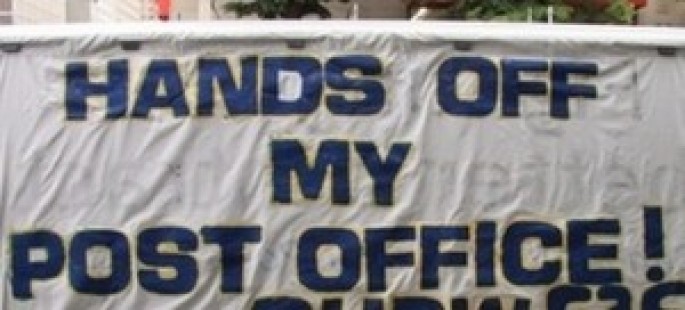Should American Progressives Be Calling for a “Public Option” in Banking?
November 30, 2011 | Economics & Trade Politics and Policy Progressive Political Commentary

Proposals for a public banking option are almost unheard of in the U.S., where free-market orthodoxy has, throughout most of our history, held sway over collective approaches to the provision of public and private goods and services. Nonetheless, the concept deserves serious consideration based on the evidence in at least a couple of areas. First, there is the striking success of this model in other advanced and advancing economies for providing and directing lower-cost, long-term capital essential for growth. And second, while better financial sector regulation, oversight, and enforcement might mitigate the worst excesses of an opaque multinational private banking system, it remains doubtful that the resources of regulators can ever match those of the private banking system to circumvent regulations and evade the consequences of wrongdoing. It is now widely understood that the private global banking and financial system has failed to serve the “real” economy, or what we often call, “Main Street.” This is not just the case in the U.S. Europe’s problems, while largely due to an ill-designed monetary union and the high sovereign debt of certain member countries, has been exacerbated by the same short-term-profit-driven, casino approach that has characterized the U.S. financial sector. Perhaps the time has come to consider another model, one that treats banking and finance more like a public utility. A public bank would not have to be beholden to shareholders demanding a 20% annual return. It could circumvent incentives that induce management to take extraordinary risks (cognizant that in the worst-case
Read More...
Are Bailouts for the Super-Rich Inevitable? Ask Paul Krugman
April 3, 2010 | Paul Crist
Are Bailouts for the Super-Rich Inevitable? Ask Paul Krugman “There’s every reason to believe that this will be the rule from now on: when push comes to shove, no matter who is in power, the financial sector will be bailed out.” Paul Krugman, 3/29/10 “The recovery of big banks not only benefited bankers. It also created huge paydays for hedge fund managers, with the top 25 taking home an average of $1 billion in 2009.” New York Times, 4/1/10 Paul Krugman, the Nobel Prize-winning economist and influential New York Times columnist, says Wall Street institutions have become so big and powerful that they will never be allowed to fail. The only hope he sees is to regulate them thoroughly. He greatly prefers the stricter rules now being offered by Barney Frank in the House to the softer ones coming from Chris Dodd in the Senate. (Neither bill truly tackles the derivatives casino.) Krugman criticizes Senate Republican leaders who portray proposed bank regulations as just another Wall Street bailout. In fact these hypocritical leaders are doing all they can to thwart the Obama administration’s modest reforms and befriend Wall Street, hoping to net some cold, hard political cash from the bankers. Unfortunately, when Krugman says bailouts are inevitable, he’s handing the government haters another round of ammunition. “See, the liberal/pinkos are going to just keep on bailing out Wall Street,” they piously intone. But, why isn’t Krugman calling for an end to all financial bailouts for the wealthy, instead of announcing
Read More...